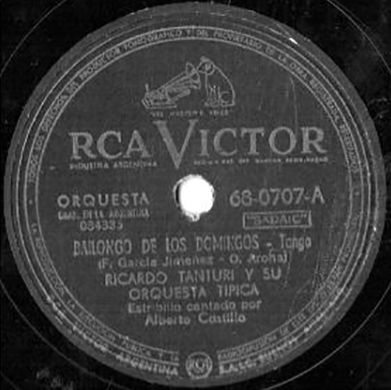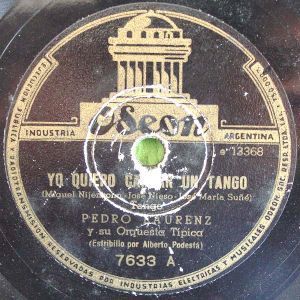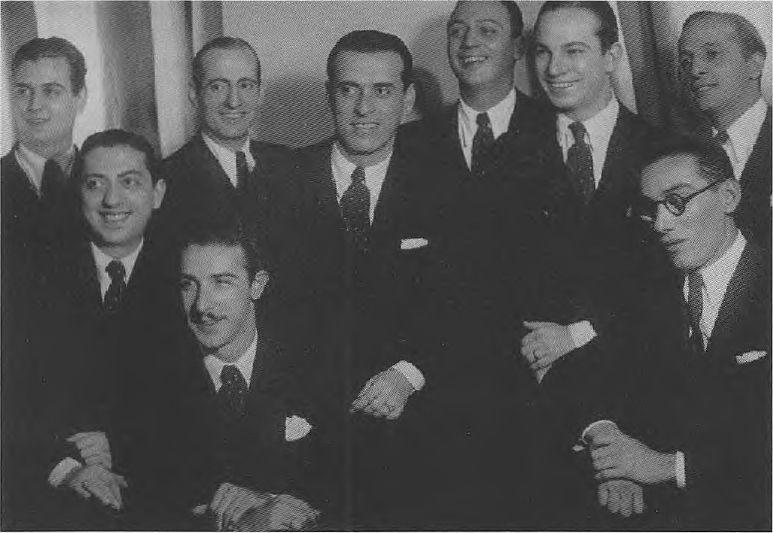“Bailongo de los domingos” by Ricardo Tanturi y su Orquesta Típica with Alberto Castillo in vocals, 1943.
“Bailongo de los domingos” by Ricardo Tanturi y su Orquesta Típica with Alberto Castillo in vocals, 1943 (with English translation).

Music: Oscar Arona | Lyrics: Francisco García Jiménez
Novela del bailarín
que escrita está,
un cacho en cada salón
de mi ciudad.
De la “Unione” al “Augusteo”
con ella te veo
soñando a compás.
Silenciosos van los dos
y dejás que hable por vos
la milonga en sus floreos.
Viejas quejas de pasión
renovando parejas
con este son…
Bailongo de los domingos!
Por vos ni vuelto a los pingos!
Y encadenado a tus tangos
hoy vivo cautivo
del ritmo dulzón.
Emoción hay una sola
y es llorar de bandoneones
fraseando acordes de Arolas.
Bailongo de los domingos!
Remanso del corazón!
Translation:
Dancer’s novel
written
a piece in each ballroom
of my city.
From the “Unione” to the “Augusteo”
I see you with her
dreaming in sync with the beat.
Both going silent,
and you let it the embellishments of the milonga
speak for you
Old complaints of passion
renewing couples
with this music.Sunday’s dancing!
Because of you I stop going to the horse racings!
Chained to your tangos
I am captive
of the sweet rhythm.
Emotion there is only one
and is the crying from bandoneons
phrasing Arolas chords.
Sunday’s dancing!
Calm waters of the heart!
Listen and buy:
-
Amazon music
-
iTunes music
-
Spotify
We have lots more music and history










